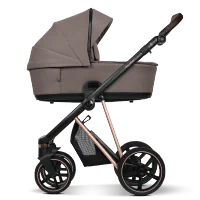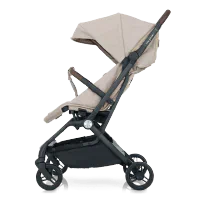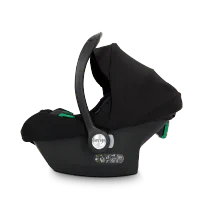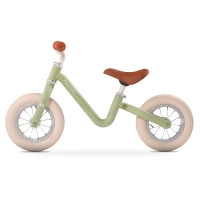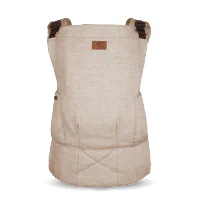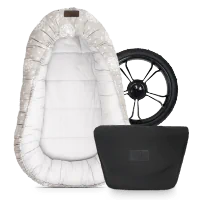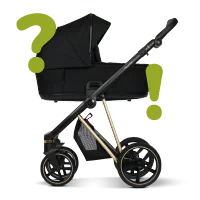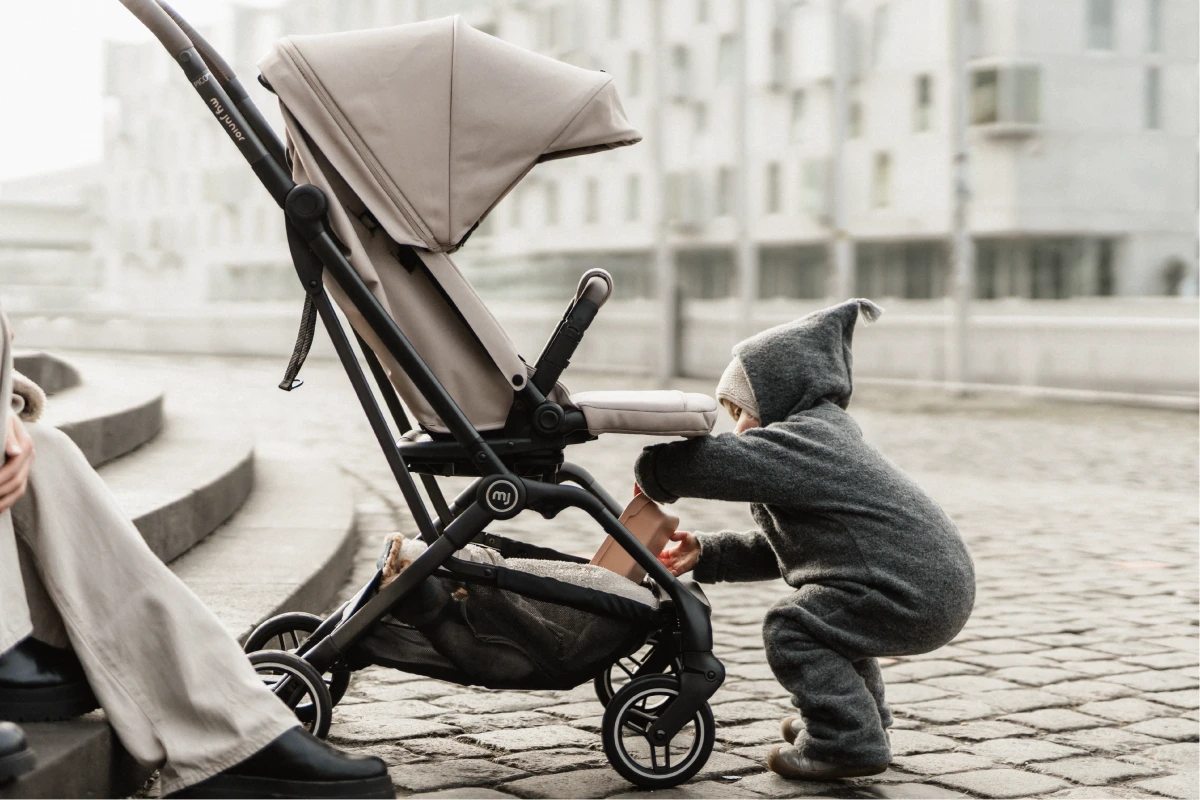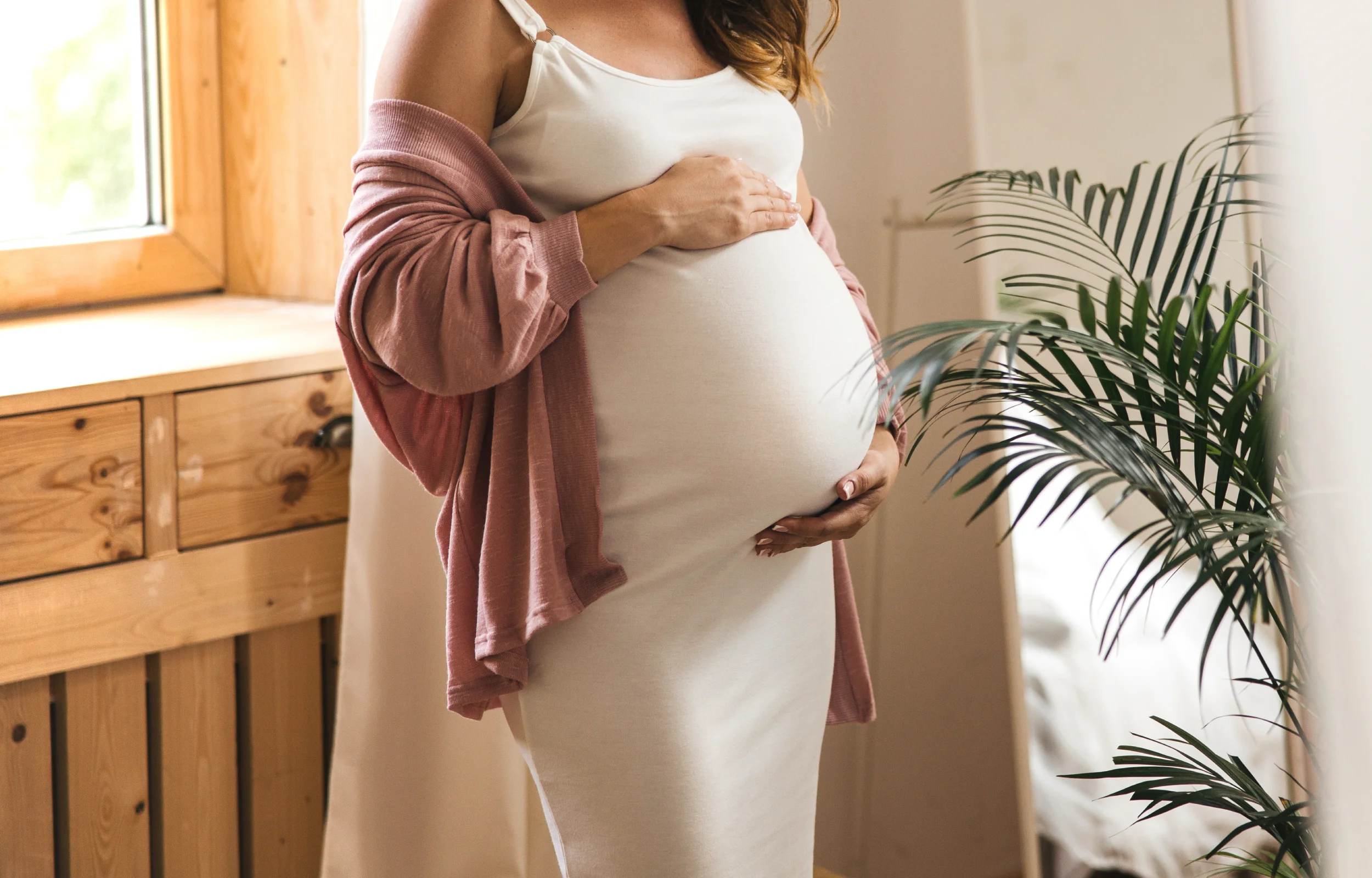
16th Week of Pregnancy (Week 16)
Welcome to week 16 – this means the end of the fourth month of pregnancy has been reached. This week brings many exciting developments for you and your baby. Your child continues to grow rapidly and your body is also adapting. For many pregnant women, this is a time full of energy and joy, during which the first movements of the baby may be felt.
The foetus is very active in week 16 and sometimes moves for up to five minutes at a time. With a bit of luck, you may already feel the first movements. However, don’t worry if you haven’t felt anything yet. The placenta still cushions your baby’s movements, so it’s quite possible that you don’t feel anything yet.
Use this phase to fully enjoy your pregnancy.
Week 16 at a glance
Your baby:
- The baby is around 11–12 cm long this week and weighs about 100 grams – similar to an avocado.
- Your baby’s bones are becoming firmer and the joints are more flexible.
- The face is showing more and more details: eyebrows and eyelashes are growing and the nose is taking shape.
- Your child already reacts to external stimuli this week, such as noises or touch.
Your body:
- Your baby bump is becoming more visible and the uterus continues to grow into the abdomen.
- You may notice gentle movements from your baby – often described as a soft fluttering.
- Pregnancy hormones such as progesterone continue to increase blood flow in this week, which may make your skin appear rosier.
- Some pregnant women notice increased appetite or the first signs of water retention this month, especially in the limbs.
Good to know about foetus and mum:
- The baby is developing its first day-night rhythm and is already practising its sleep cycles during pregnancy.
- The placenta supplies your baby with nutrients and oxygen – make sure to eat a balanced diet.
- Your heart is now pumping more blood to optimally supply both mother and baby.
- If your bump is growing and you need more comfort, now is a good time to try maternity clothes.
Baby’s development in week 16:
The foetus is about 11 cm long and weighs around 100 g in week 16, about the size of an avocado. This week, your baby’s legs will experience a significant growth spurt. As a result, the child’s proportions are becoming more human-like. The ratio of head to body is more balanced, and for the first time, the legs are now longer than the arms.
The ears are already so well developed at this stage of pregnancy that your baby can hear your heartbeat (or other sounds). Vibrations from your voice or a passing car can also be heard by your child. So feel free to sing to your little one or tell them about your day. They will become accustomed to the soothing sound of your voice.
Your body in the 16th week of pregnancy:
In week 16, the placenta is growing. It will now gradually take over supplying your baby. Your cervix is slowly bending backwards. This helps to optimally protect the cervix and your little one.
Do you currently feel an uncomfortable sensation around your belly button? These are most likely the round ligaments. They are stretching because the baby is getting bigger. The round ligaments hold your uterus to the pelvic bone. Back pain can also occur due to the stretching of the round ligaments.
Tips for the 16th week of pregnancy
You must be really curious by now whether you’re having a boy or a girl. If you have an ultrasound appointment coming up soon, there’s an excellent chance you’ll be able to find out the sex of your baby in week 16. Ask your partner to come along with you to the appointment so you can both be surprised together.
Movement and light exercises:
Exercise is especially important in the 16th week of pregnancy to keep your body fit and relaxed. Gentle sports such as yoga, Pilates or swimming strengthen your muscles, especially the pelvic floor, and promote circulation. These activities can also help to reduce water retention in the legs and prevent pregnancy complaints such as back pain.
Be careful not to overexert yourself – short breaks in between are important. Walks in the fresh air offer a double benefit: exercise and oxygen intake not only strengthen you, but also your child.
Consciously shaping your diet:
In this phase (the end of the fourth month of pregnancy), your body needs additional nutrients to support the growth of the foetus. Iron-rich foods such as spinach, lentils and wholegrain products help to promote your blood formation, while vitamin C – for example from peppers, oranges or kiwi – improves iron absorption. Omega-3 fatty acids from fish such as salmon support your baby's brain development.
As a pregnant woman, continue to avoid raw milk products, raw meat/fish, and inadequately washed foods to prevent infections during pregnancy. Drink enough water to support the increased blood flow and the work of the placenta.
Relaxation for body and mind:
Your daily routine as a pregnant woman should include a good balance of activity and rest. Schedule regular breaks during which you can lie down or meditate. Breathing exercises are particularly helpful for reducing stress and supplying your body with oxygen.
A warm bath (not too hot) can not only relieve tension, but also offer you, as a mother, a moment of peace. You can listen to a soothing playlist or read a book to help you relax mentally.
Skin care and abdominal massages:
The skin on your belly is put under a lot of strain in week 16 of pregnancy due to growth. Regular care with moisturising creams or natural oils such as almond or coconut oil can relieve feelings of tightness in your stomach and help to maintain the skin’s elasticity during pregnancy. Gently massage your baby bump with soft, circular movements – this promotes blood circulation and also creates a lovely bond with your baby. If needed, combine this with a moment of relaxation to consciously enjoy your day.
Make active use of preventive check-ups:
Your next appointment with the doctor or midwife will offer you valuable insights into your baby's development.
The size and movements of the baby are checked, and an ultrasound shows how far the bones, organs, and nervous system have developed. Take the opportunity to ask any questions you may have about your health, nutrition, or any complaints.
Even when you first feel your baby move, you can discuss this with your doctor. Regular check-up appointments give you reassurance and allow you to deepen your bond with your baby.
Frequently Asked Questions about Week 16 of Pregnancy
How big is my baby at 16 weeks pregnant?
Your unborn baby is about the size of an avocado (approx. 11 cm) and weighs around 100 grams. It is growing at a rapid pace, and its arms, hands, and head are continuing to develop. In a 3D ultrasound, you can already see impressive details such as movements and early milestones.
Why do I experience a pulling sensation in my abdomen during pregnancy?
The pulling sensation is caused by the round ligament of the uterus, which stretches during pregnancy to make room for the foetus. These symptoms are normal for pregnant women and a sign that your body is adapting to the growth. If the pulling sensation is strong, lie on your back and allow yourself some rest.
However, the following also applies here: If the pain is too severe or you have a bad feeling, please consult medical professionals or your midwife.
When does colostrum form?
In the second trimester of pregnancy, the glandular tissue in your breasts begins to develop. During this process, the first drops of colostrum are produced – the valuable pre-milk that will nourish your baby after birth.
Why is my skin changing this month of pregnancy?
The hormonal changes during the trimester of pregnancy can cause spots and the linea nigra, a dark line on the mother’s abdomen. These changes are due to genetic predisposition and usually recede after birth.
Why does the scale show a weight gain?
Weight gain is a natural part of pregnancy as a mother. Your body retains amniotic fluid and the placenta ensures your baby is provided for. The extra weight contributes to your well-being and prepares you for breastfeeding.

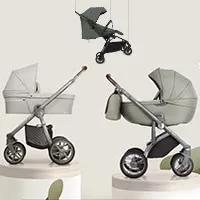 Pushchair
Pushchair 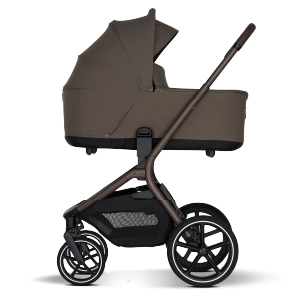 MAVI
MAVI 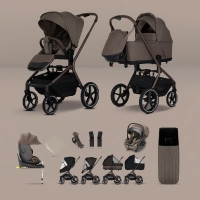 MAVI Bundle
MAVI Bundle 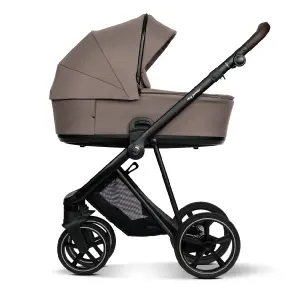 VIGO²
VIGO²  VITA unique³
VITA unique³ 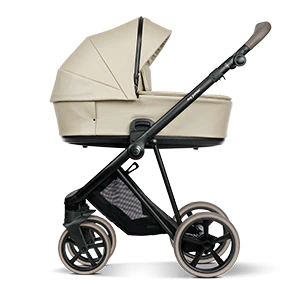 VIGO² Alcantara
VIGO² Alcantara 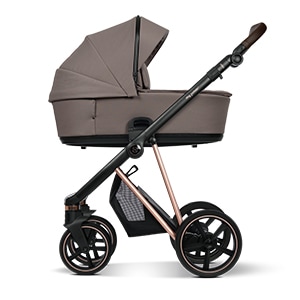 VIGO
VIGO 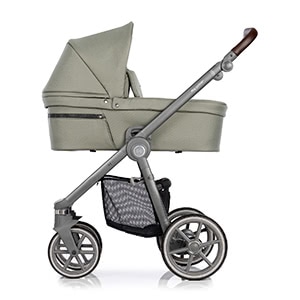 VITA HOPE
VITA HOPE 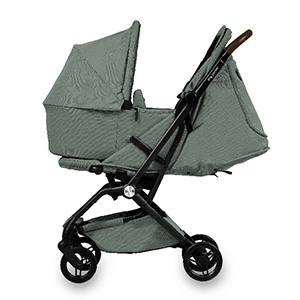 PICO³ with tub
PICO³ with tub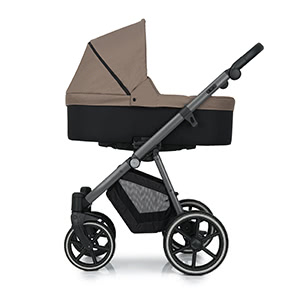 NOAX²
NOAX² 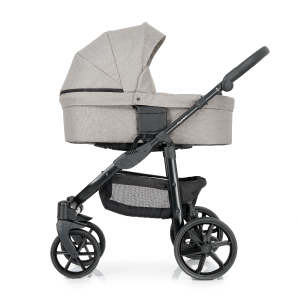 MIYO²
MIYO²  Pram tests
Pram tests  Consultation
Consultation  Buggies
Buggies 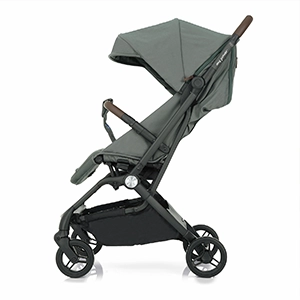 PICO³
PICO³ 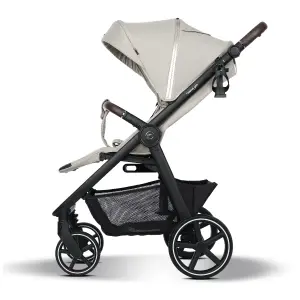 PLIA²
PLIA²  PLIA² Air
PLIA² Air 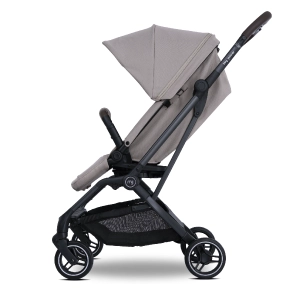 PICO³⁶⁰
PICO³⁶⁰ 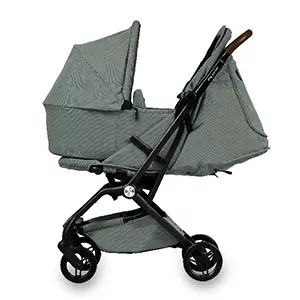 PICO³ with tub
PICO³ with tub 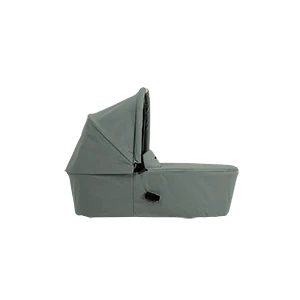 PICO tub
PICO tub 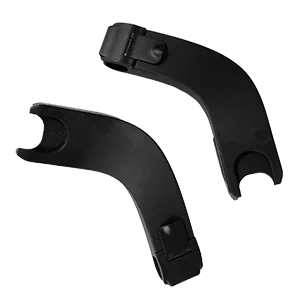 PICO infant car seat adapter
PICO infant car seat adapter  Limited Editions
Limited Editions 

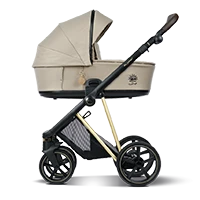
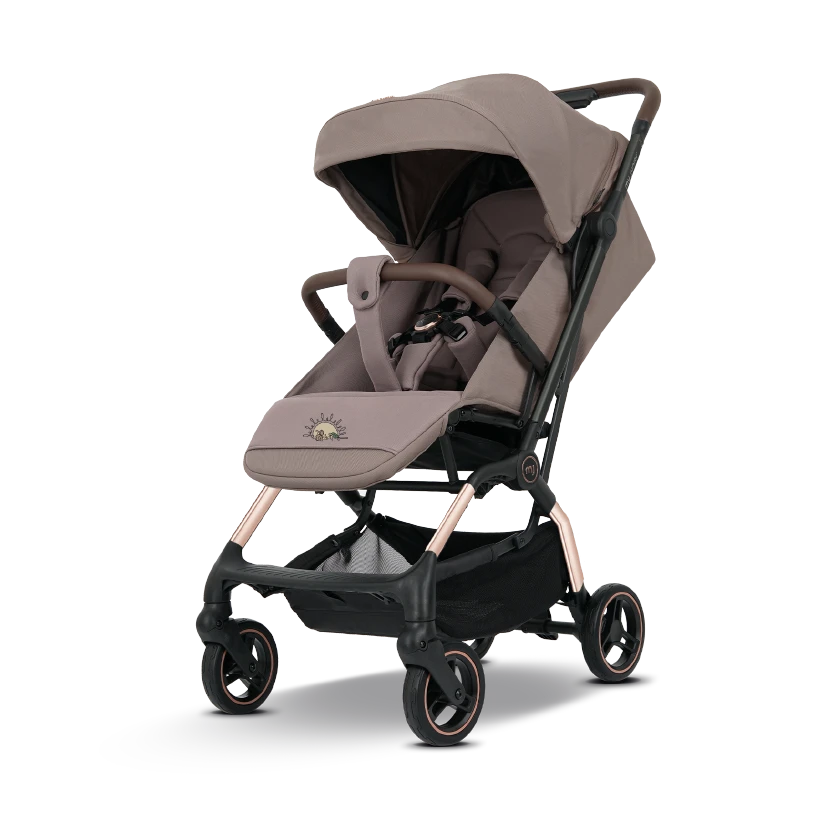
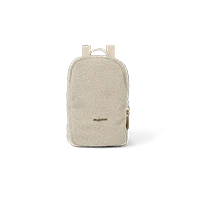
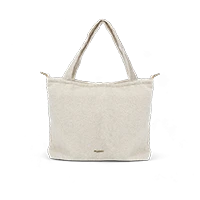
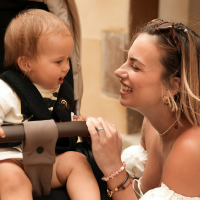
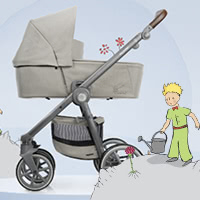
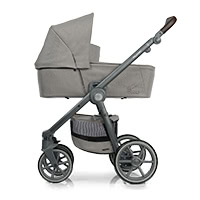
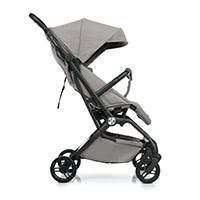
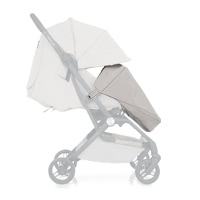

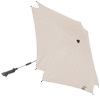 Limited Edition Parasol
Limited Edition Parasol 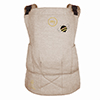 Limited Edition Baby Carrier
Limited Edition Baby Carrier  Child seats
Child seats  All Isofix Bases
All Isofix Bases  AURAᵉʳᵍᵒ
AURAᵉʳᵍᵒ  Aura Pro
Aura Pro 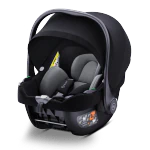 Beam
Beam 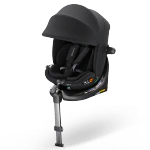 Cyro 360
Cyro 360 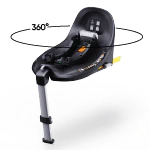 Base 360
Base 360 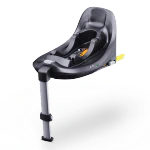 Base Static
Base Static 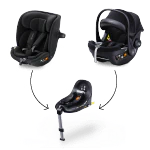 Capsule System
Bundle
Capsule System
Bundle 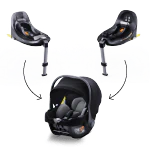 Beam Bundle
Beam Bundle 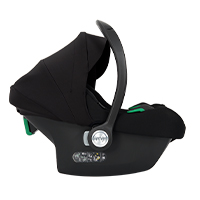 Avionaut Cosmo
Avionaut Cosmo 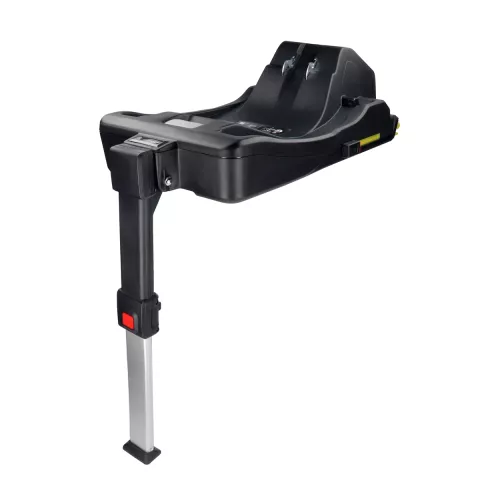
 Reviews
Reviews  Read reviews
Read reviews  Write a review
Write a review 
 Home
Home  Fabric sample
Fabric sample  Baby carriers
Baby carriers  LUVA
LUVA  NAMI
NAMI 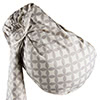 NAMI with ring
NAMI with ring  Accessories
Accessories 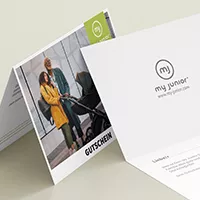 Vouchers
Vouchers  Discover my junior®
Discover my junior®  About us
About us  In your vicinity
In your vicinity  All my junior
All my junior Flagship Store
Aachen
Flagship Store
Aachen  Flagship Store
Hamburg
Flagship Store
Hamburg 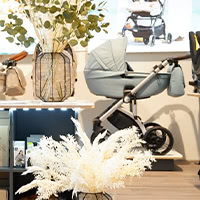 Flagship Store
Salzburg
Flagship Store
Salzburg  Flagship Store Binzen
Flagship Store Binzen
 Flagship Store
Krefeld
Flagship Store
Krefeld  Studio Cologne
Studio Cologne  Studio Trier
Studio Trier  Studio Braunschweig
Studio Braunschweig
 Studio Metzingen
Studio Metzingen
 my junior® pram in
Switzerland
my junior® pram in
Switzerland  Help and Contact
Help and Contact  Useful
Useful 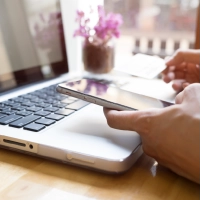 Career
Career  Press
Press 


